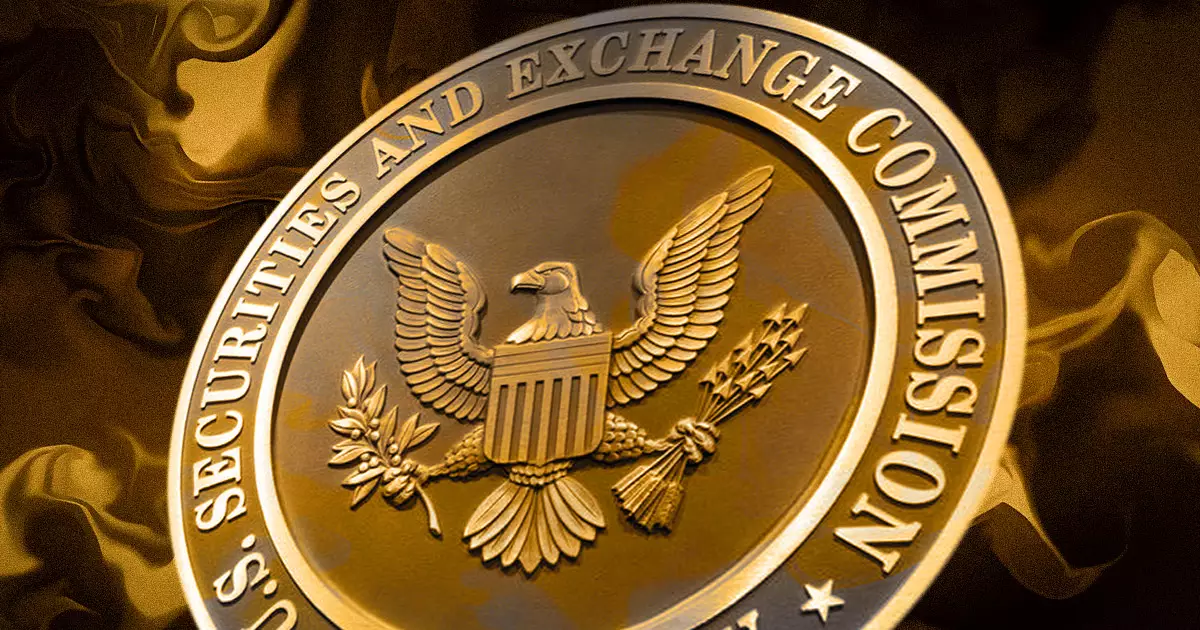U.S. Senator Cynthia Lummis recently filed an amicus brief in support of Coinbase’s motion to dismiss the U.S. Securities and Exchange Commission (SEC) lawsuit. Senator Lummis, known for her pro-crypto stance, drew attention to the ongoing debates in Congress regarding cryptocurrency regulation. In her brief, she emphasized the need for Congress to develop appropriately balanced regulations and argued that the court should dismiss the SEC’s case. According to Lummis, it is Congress, not the SEC, that should have the power and authority to legislate in this area, given its profound economic and political significance.
The SEC’s Attempt to Expand its Authority
The brief highlighted the SEC’s attempt to bring cryptocurrencies under the definition of “investment contract” through a “novel interpretation” of the words. Senator Lummis argued that Congress never granted the SEC the authority to expand its influence and authority beyond the definition set by Congress. Describing the SEC’s claim that most cryptocurrencies are securities as a power grab, she criticized the agency for circumventing the lawmaking process.
The Constitutional Limits of the SEC
Senator Lummis asserted that the SEC’s attempt to “shoehorn” an entirely new class of assets into the existing definition of a security exceeds its authority and encroaches on Congress’s lawmaking power. She emphasized the importance of the separation of powers and the major questions doctrine, which dictate that only Congress can make laws on major national and economic issues. According to Lummis, it is Congress, not the SEC, that should determine the regulatory framework for crypto assets.
Congress as the Appropriate Regulatory Authority
While Senator Lummis acknowledged that Congress could grant the SEC the necessary authority to regulate cryptocurrencies, she emphasized that it should be a decision made by Congress itself. The SEC cannot usurp this decision for itself through enforcement actions. Through the case against Coinbase, the SEC is attempting to gain influence on matters that are already being debated by Congress, which raises concerns about the agency overstepping its boundaries.
The SEC’s Misalignment with Legislative Efforts
Senator Lummis pointed out that several crypto regulation bills are currently under consideration in Congress. Interestingly, most of these bills recommend other agencies besides the SEC to regulate the majority of the crypto market. This highlights a misalignment between the SEC’s expansive interpretation of its authority and the prevailing legislative efforts. While some bills may differ, the SEC’s claim to have authority over the new sector is “out of step” with the current legislative discourse.
Senator Cynthia Lummis’s amicus brief in support of Coinbase’s motion to dismiss the SEC lawsuit brings critical attention to the role of Congress in cryptocurrency regulation. She argues that the SEC’s attempts to regulate crypto through enforcement actions exceed its authority and encroach on Congress’s lawmaking power. Lummis firmly asserts that it is Congress, not the SEC, that should determine the regulatory framework for crypto assets. As ongoing debates on crypto regulation continue in Congress, the SEC’s ambitious claims may be at odds with the eventual legislation that emerges. The outcome of Coinbase’s case and the broader debate on cryptocurrency regulation will significantly impact the future of the industry in the United States.


Leave a Reply